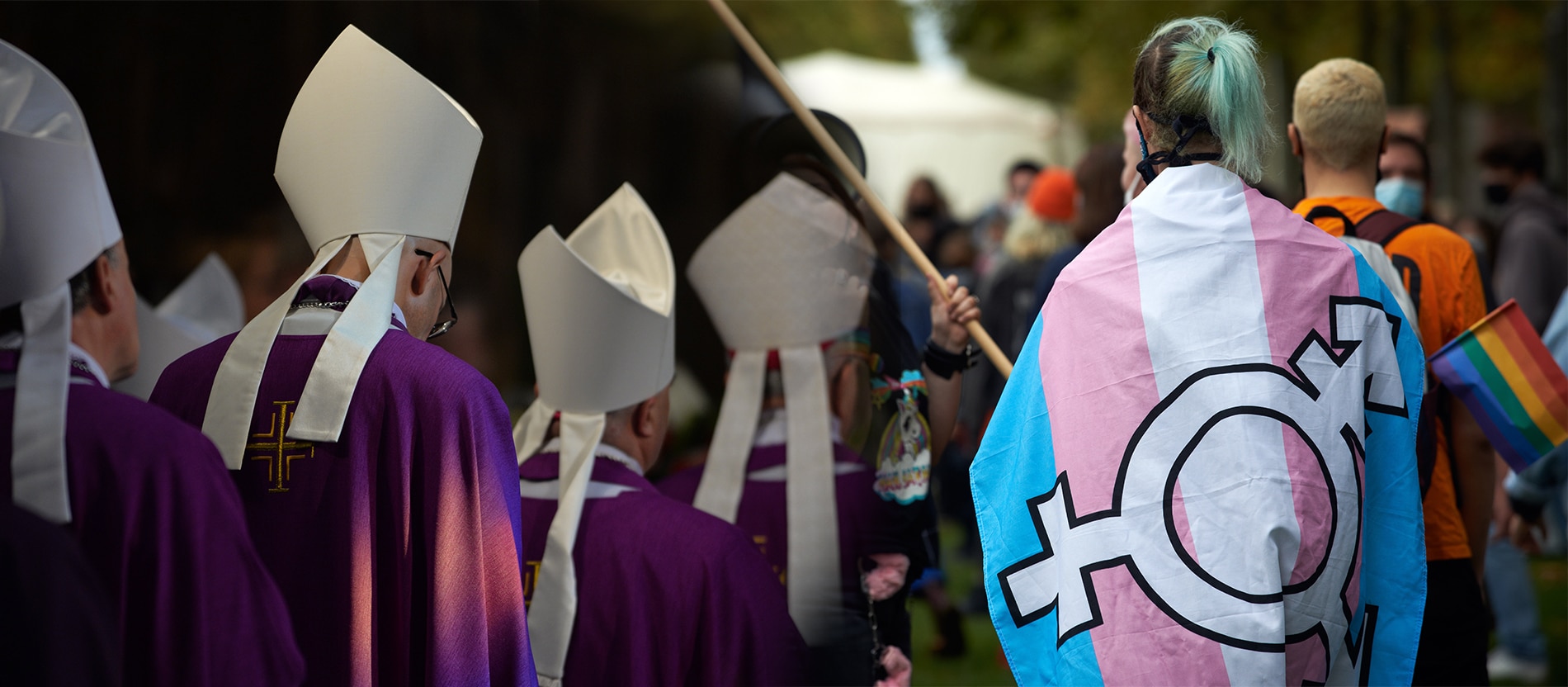The current news shows once again that discrimination against queers is more widespread than it may often seem. Among other things, the relationship between the church and the community repeatedly leaves much to be desired.
One of the numerous examples is the development in the US state of Michigan. Here, transsexuals and homosexuals are to be prohibited from receiving sacraments in the future. Possibly not only the queers themselves, but also their children will be affected by this ban.

What are the current requirements in the Diocese of Marquette?
If the diocese of Marquette(Michigan) has its way, queer people should no longer be allowed to receive sacraments simply because they are queer.
This means that queers there will not be allowed to be confirmed or receive Holy Communion in the future, for example. Even if some questions about the practical implementation of the "new guidelines" remain open, it is clear in which direction the innovations are going. Those who "dare" to live as they wish will be virtually excluded from the everyday life of the Church.
A corresponding document talks about people who "live in a same-sex partnership." Translated, this further means: those who want to live their faith in full and WITH the sacraments are not allowed - at least not publicly - to stand by their partner.
Particularly frightening: whoever is gay, for example, and still wants to receive Holy Communion, is called upon to repent and separate. Those who are transsexual and have already undergone possible surgery are "allowed"toremain physically as they are. Nevertheless, the diocese considers it a basic requirement to repent of what has happened.
Children of rainbow families are also excluded
The restrictions on children who grow up in rainbow families but are themselves heterosexual are somewhat "looser". The affected children are "only" not allowed to be baptized or confirmed.
One of the last sentences recorded in this frightening document almost sounds like a bad joke in this context. Here it says that discrimination must be avoided in any case.
As an official justification for their exclusion from the documents, those responsible state that people who were attracted to the same sex should only be called "sinners" if they themselves decide to act queer.
Relationship between queer community and church remains tense
The current events show once again "on a smallscale" how problematic the situation has become. In this context, individual dioceses can be sure of the Pope's support.
In the recent past, the pope has repeatedly stated that queerness and the faith of the church cannot be reconciled.
Many queers live out their faith nonetheless
Even if the Catholic Church in particular is skeptical of queers and the community in general, there are definitely many queer people who apparently believe in God and not in the church as an institution, and who can(and want to) meet both from each other.
And despite numerous setbacks, which can be seen, among other things, in the fact that the Pope speaks out against the blessing of same-sex couples, there is still hope that the Church will continue to open up here in the coming years. Perhaps also because there are more and more young believers who are actively working to integrate the people of the community more and to give them more opportunities to connect their faith and their love for each other more.
By the way, "West Side Story" is censored in 9 Gulf countries.